




We understand the importance of affordability without compromising on quality, making cardiac defibrillator placement accessible to all. We prioritise your cardiac well-being with our cutting-edge cardiac defibrillator surgery. Explore the benefits of ICD Insertion with us and know how it ensures your heart beats right, every time.
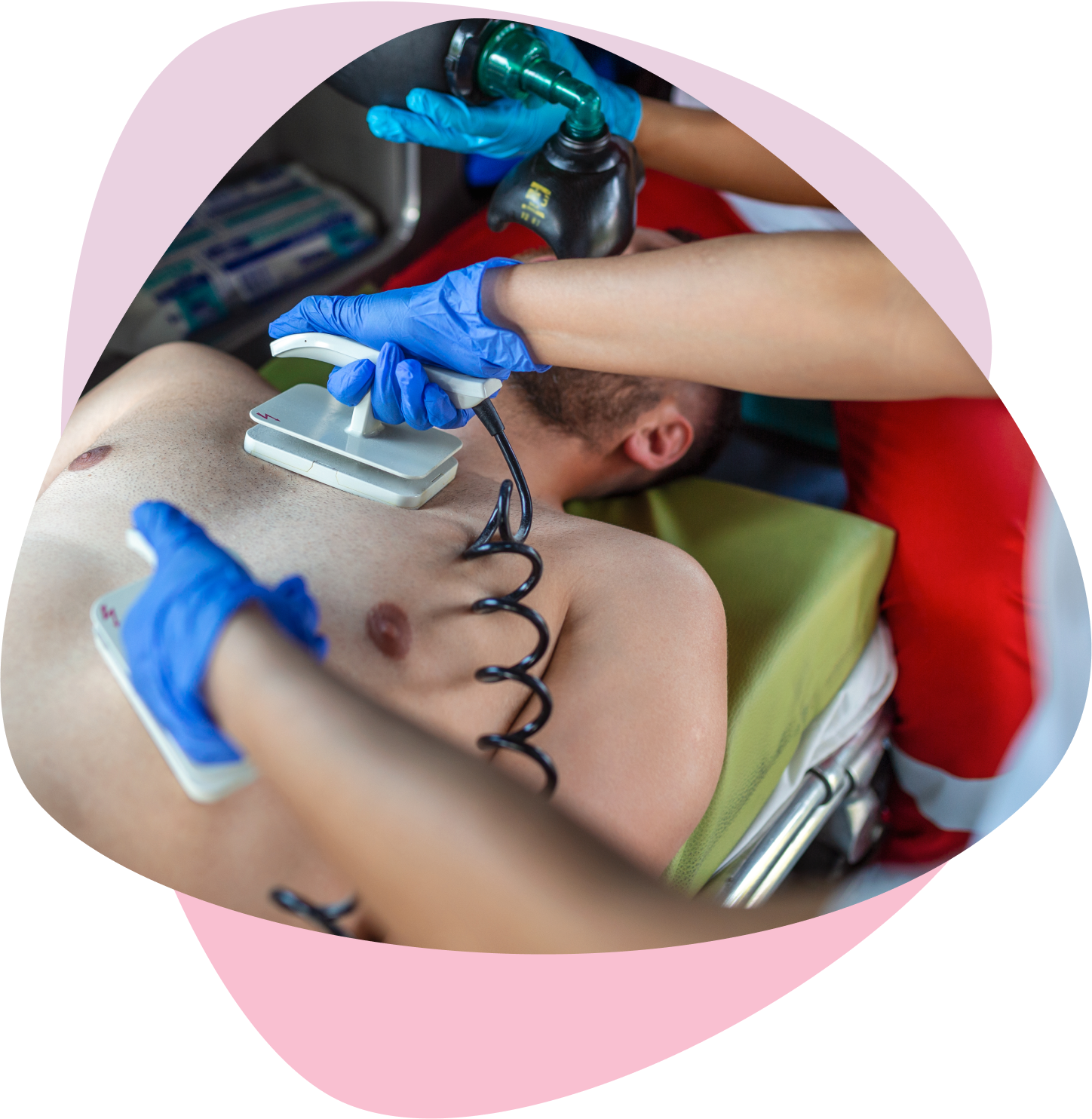
ICDs continuously monitor heart rhythms and provide immediate intervention for life-threatening arrhythmias.
By delivering timely shocks, ICDs prevent sudden cardiac arrest, significantly improving survival rates.
The ICD implantation procedure is straightforward, with a quick recovery time, allowing you to resume daily activities swiftly.
ICDs offer long-term protection, providing peace of mind for patients with a high risk of arrhythmias.
ICDs can be programmed to match individual heart conditions, ensuring personalised and effective treatment.
ICDs often include features that monitor physical activity, helping doctors make informed decisions about overall health.
An ICD implantation, or implantable cardioverter defibrillator procedure, involves placing a small device under the skin, typically near the collarbone. This device continuously monitors the heart's rhythm and is designed to deliver electric shocks when it detects life-threatening arrhythmias, such as ventricular fibrillation or ventricular tachycardia. These timely interventions help prevent sudden cardiac arrest and significantly improve survival rates.

Experience comprehensive ICD options at Kauvery Hospital, including:
Monitors and corrects arrhythmias in the right ventricle.
Monitors and corrects arrhythmias in both the right atrium and right ventricle.
Also known as CRT-D, it helps coordinate the contractions of both ventricles in patients with heart failure.
Implanted under the skin without leads in the heart, reducing infection risks and avoiding blood vessels.
Leads are placed inside the heart via veins, offering comprehensive monitoring and therapy for various arrhythmias.
An external vest-like device worn temporarily, monitoring and delivering shocks for arrhythmias without invasive surgery.
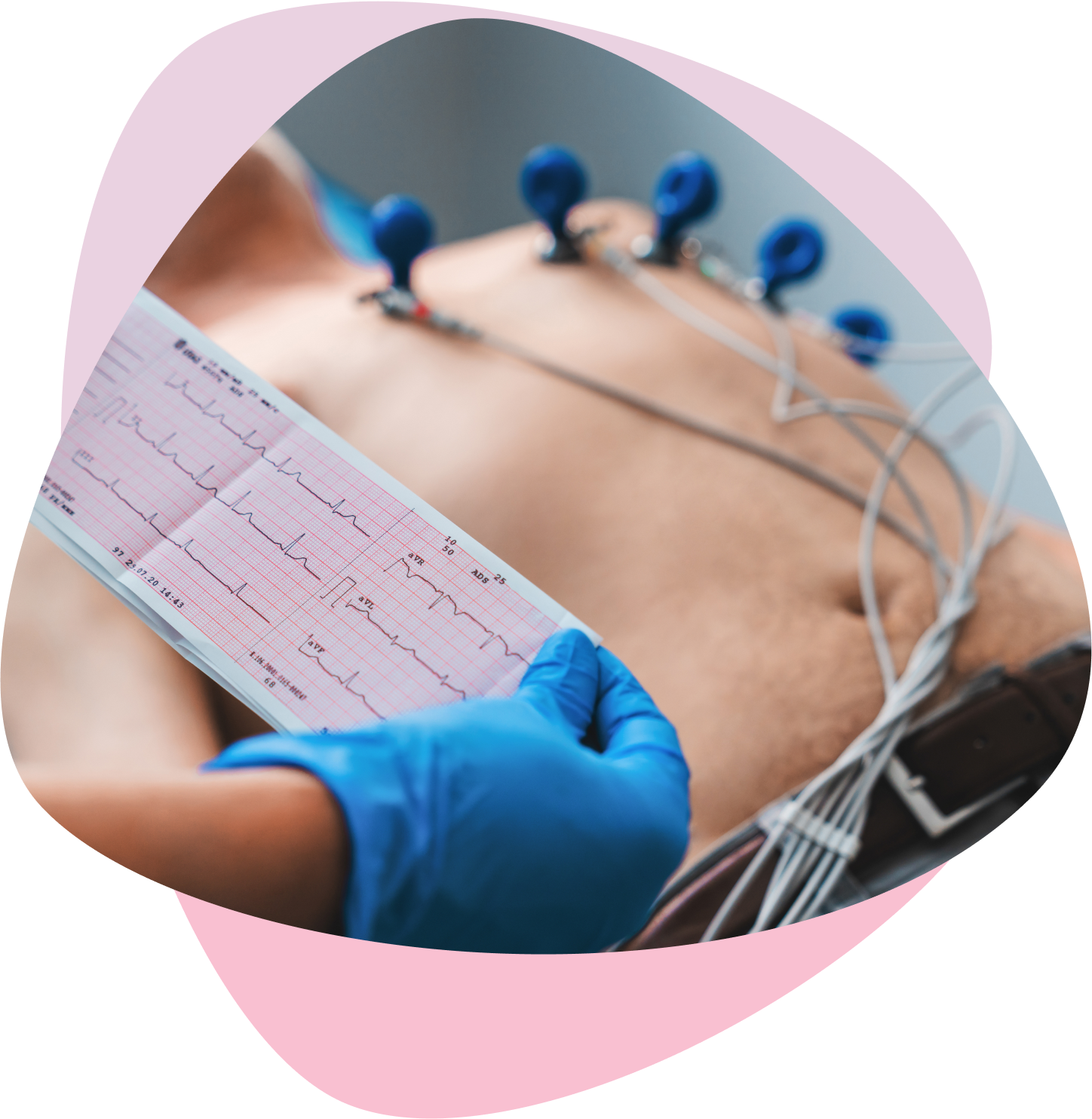
You will need cardiac defibrillator insertion if you have:
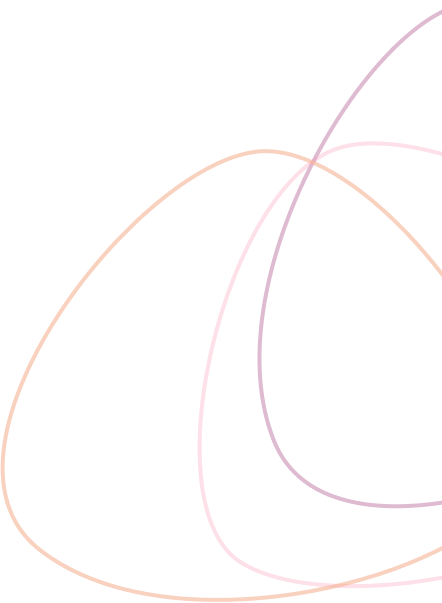
ICD implantation is instrumental in managing various cardiac conditions, such as:
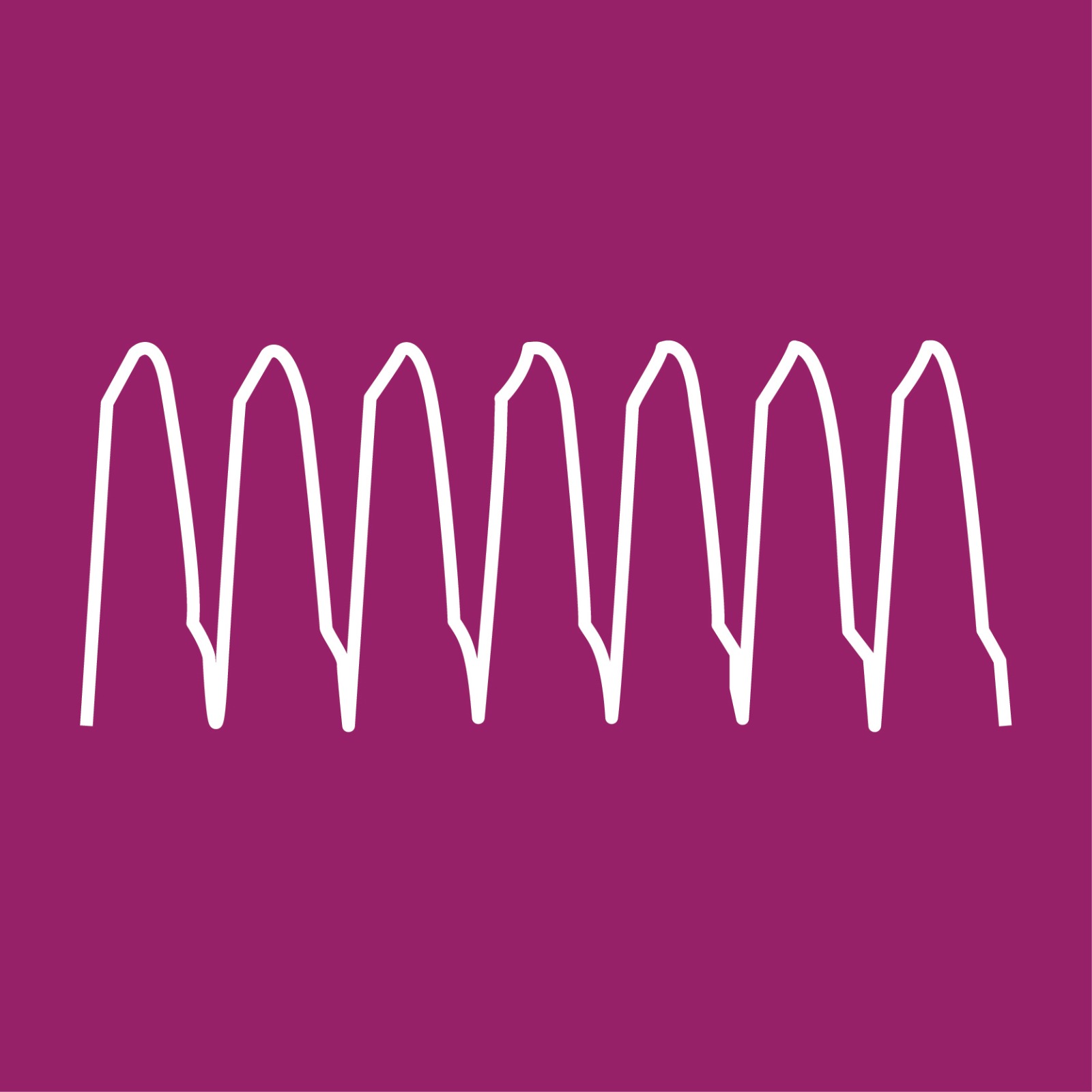
A fast, abnormal heart rate originating from the heart's ventricles.
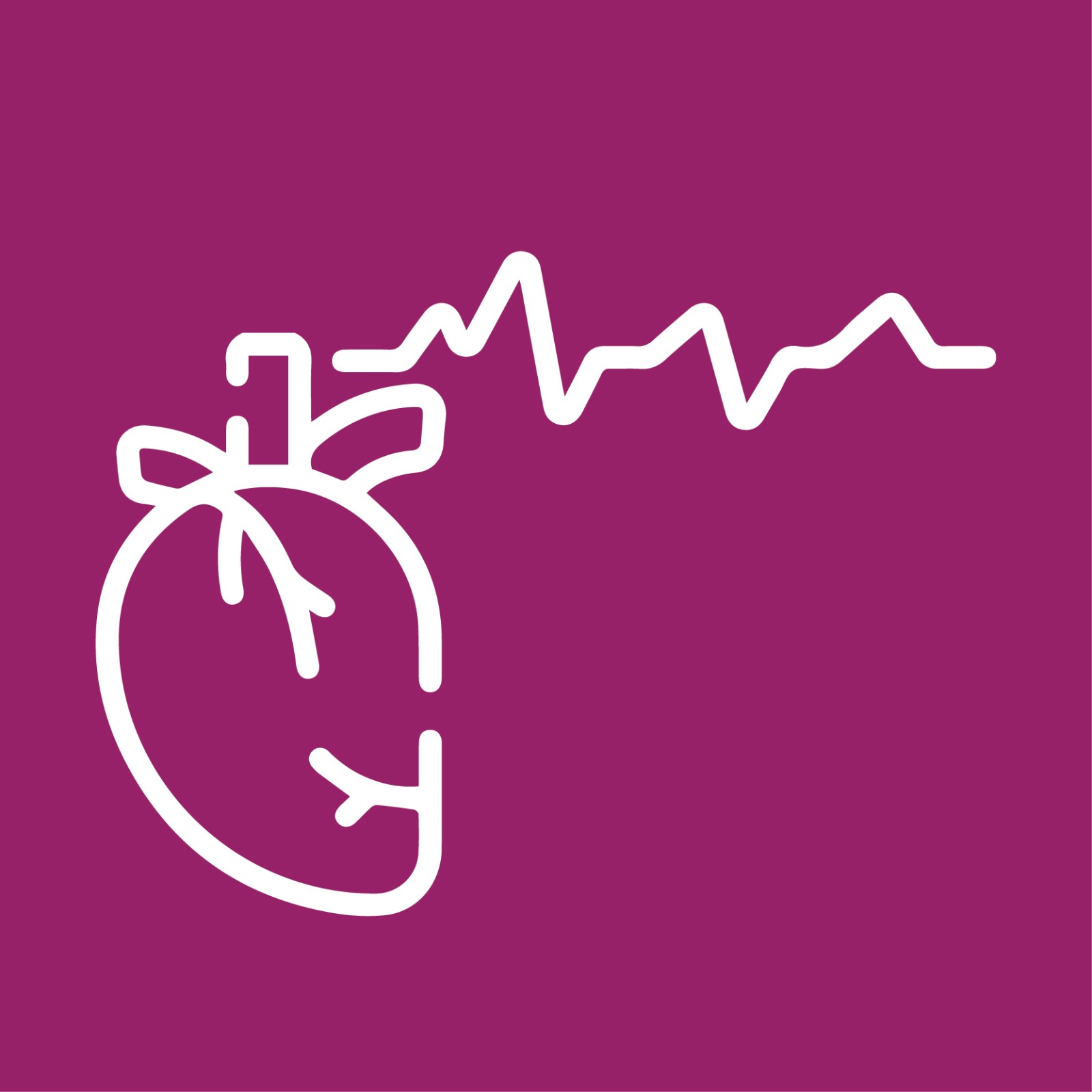
A life-threatening heart rhythm causing rapid, erratic electrical impulses in the ventricles.
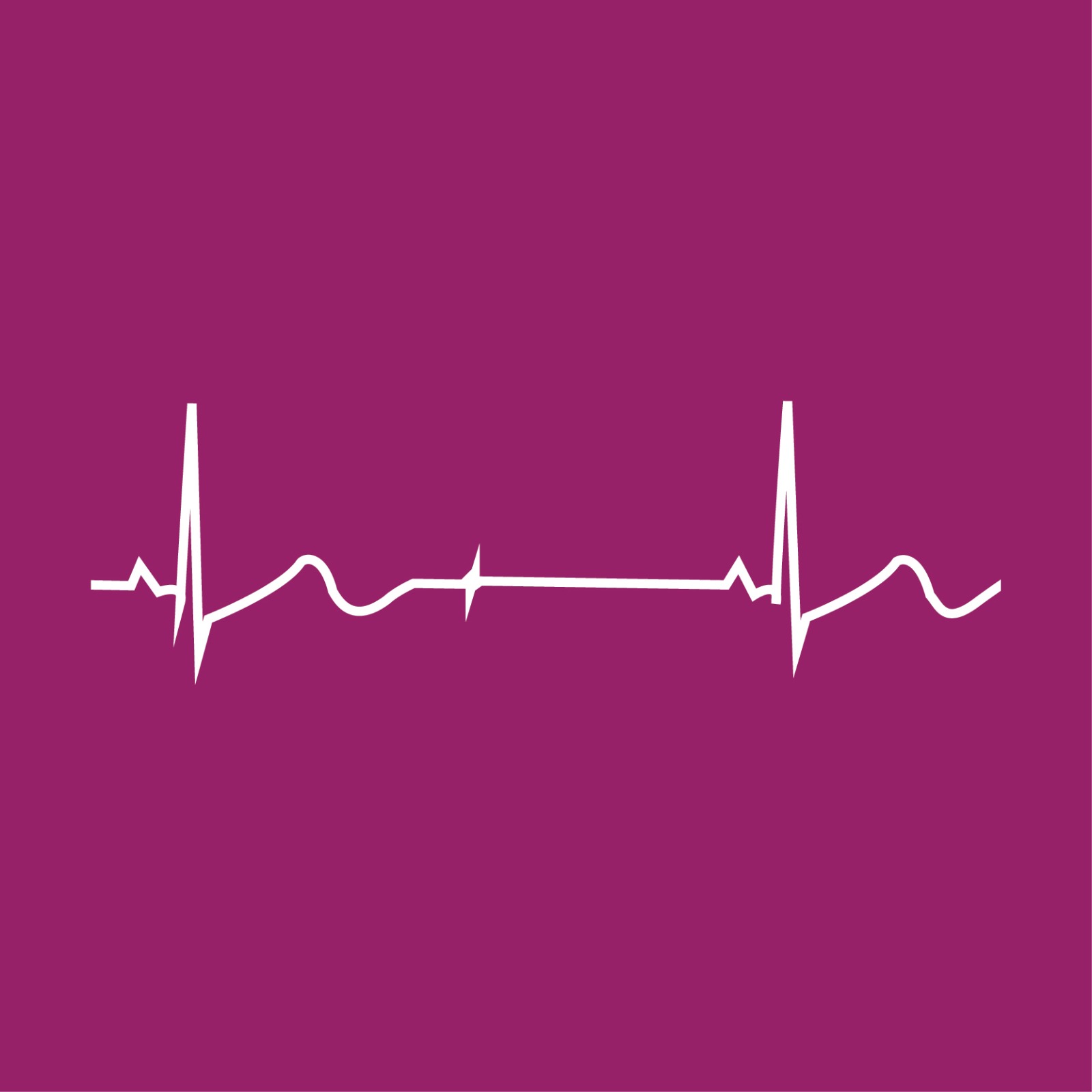
condition involving alternating slow (bradycardia) and fast (tachycardia) heart rhythms.
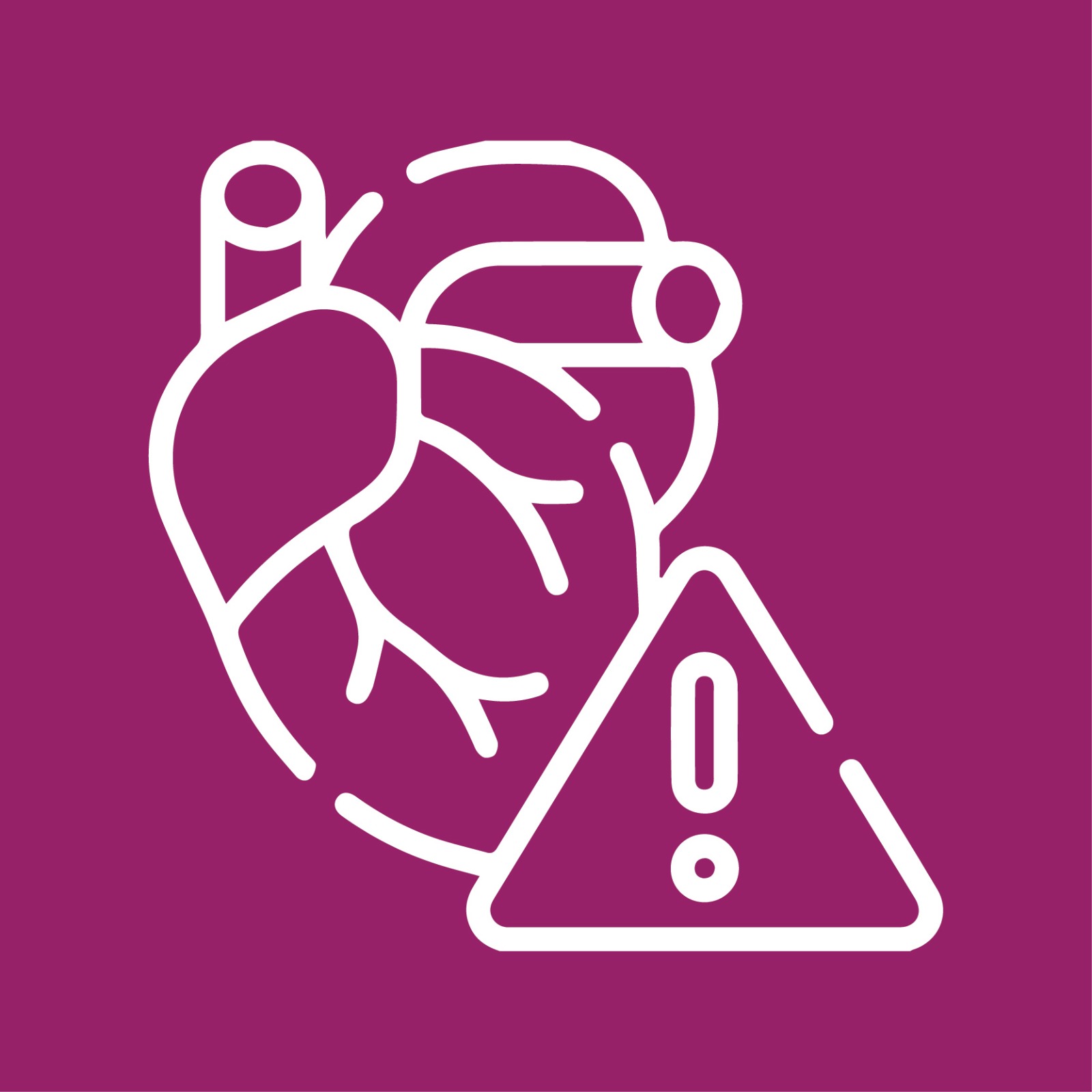
A type of heart failure where the heart's left ventricle cannot pump blood effectively.
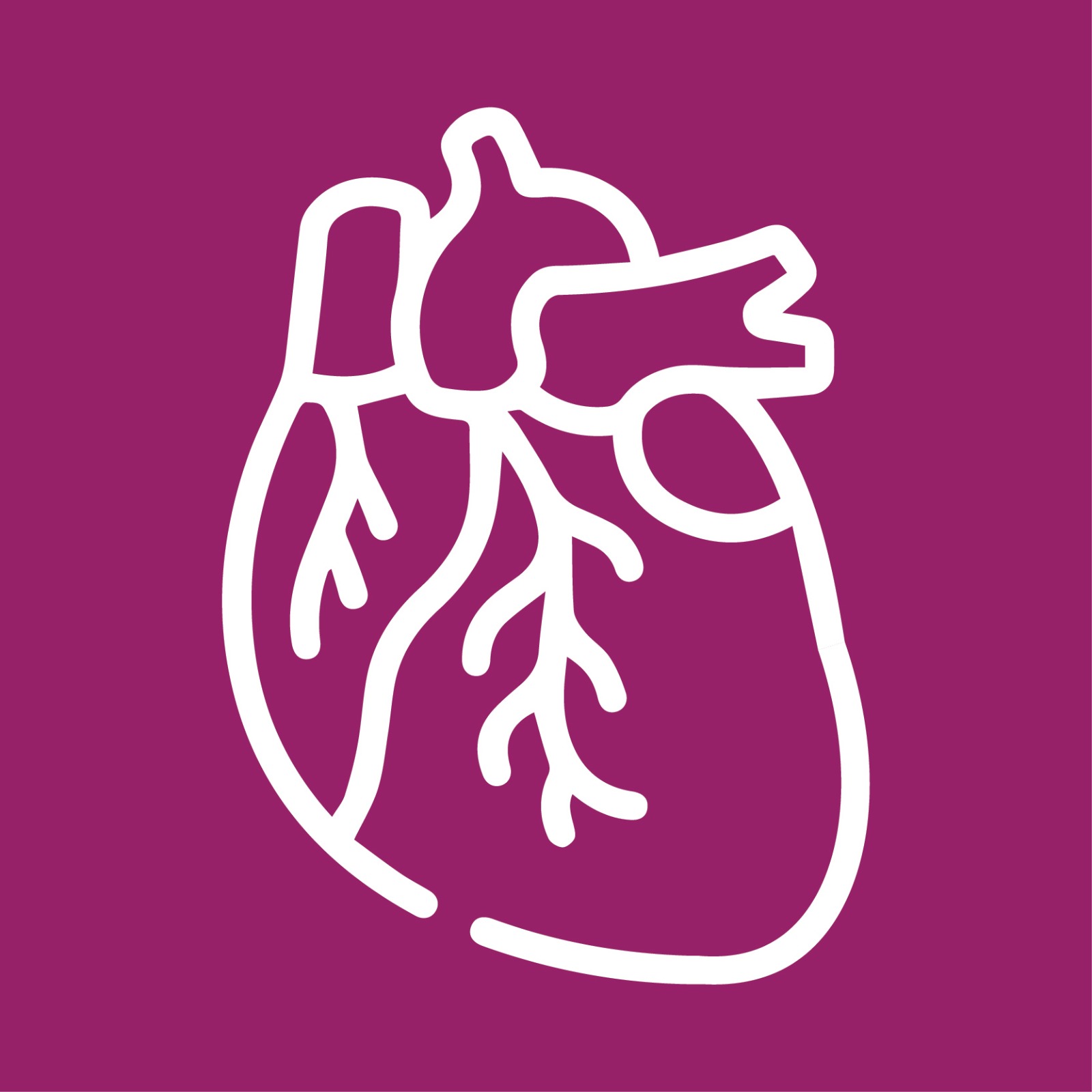
A condition where the heart muscle becomes abnormally thick, increasing the risk of dangerous arrhythmias.
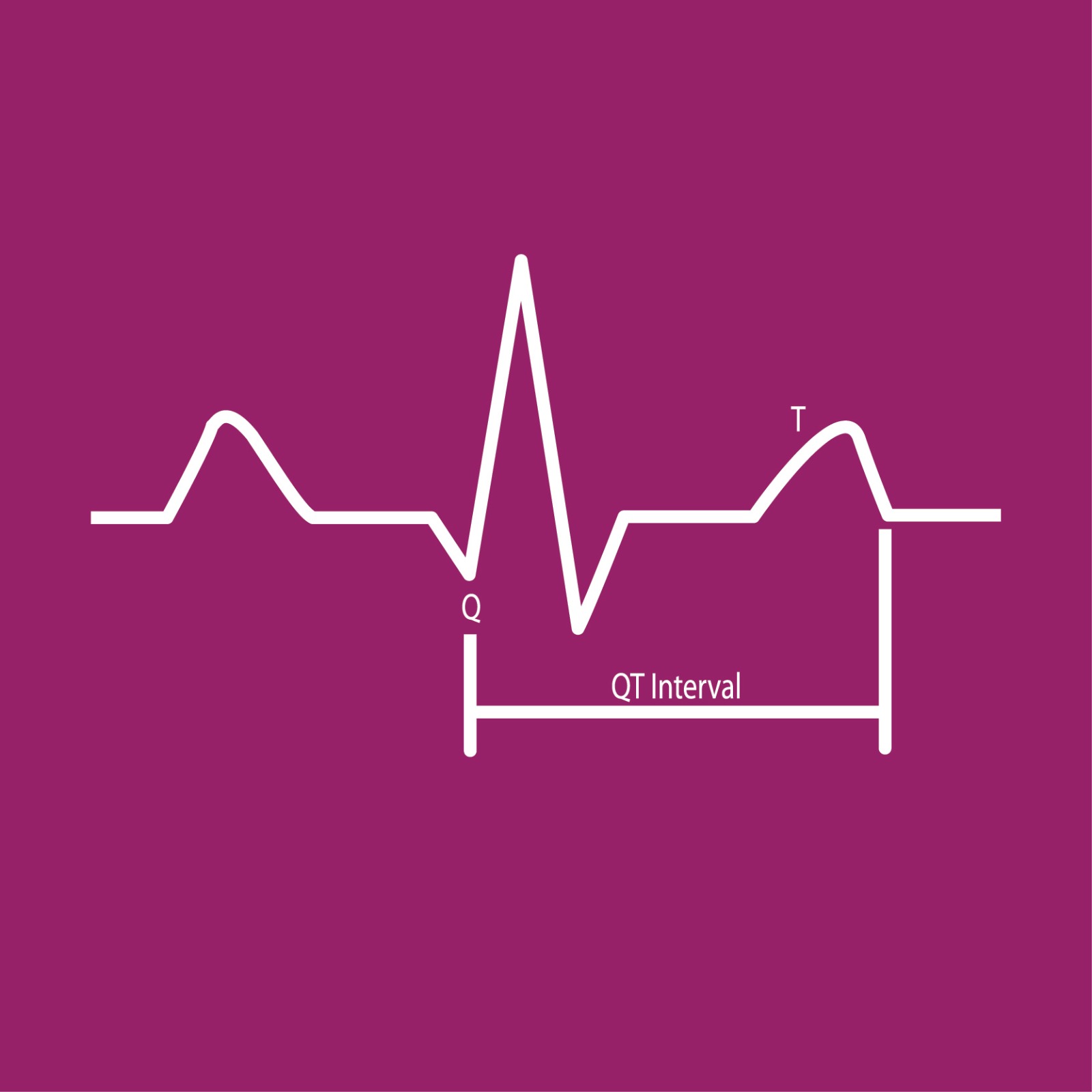
An inherited disorder that prolongs the QT interval causing fatal arrhythmias.
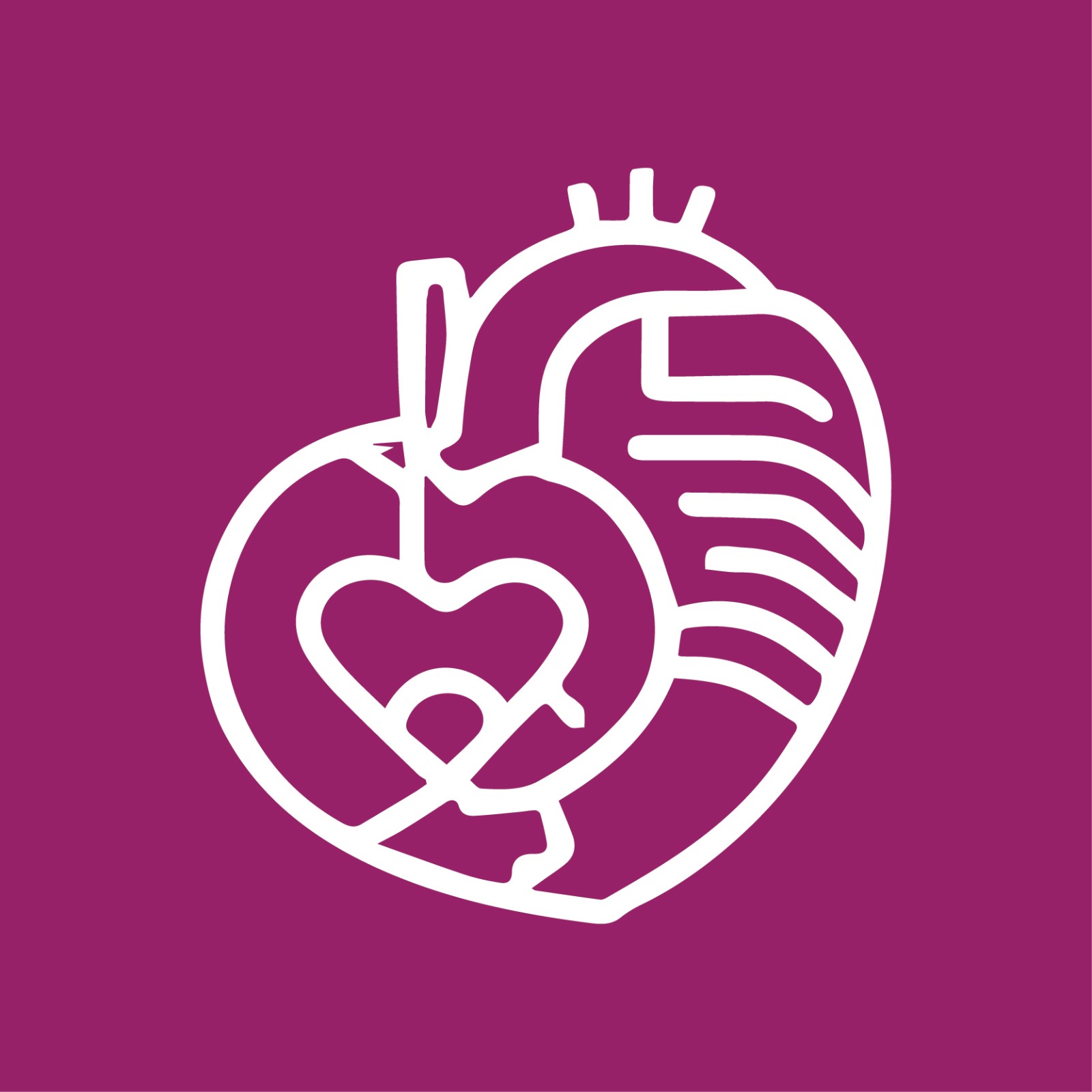
A genetic condition where the right ventricle muscle is replaced by fatty/fibrous tissue.

At Kauvery Hospital, we make use of cutting-edge technology to provide the safest and most effective ICD implantations. Our commitment to innovation and patient care is evident in our three advanced approaches:
We offer the latest subcutaneous ICDs, which are implanted under the skin without the need for leads in the heart.
Subcutaneous ICDs (S-ICDs) represent a significant advancement in ICD technology. Unlike traditional ICDs that require leads to be placed inside the heart via veins, S-ICDs are positioned just under the skin.
This method significantly reduces the risk of infections and complications associated with transvenous leads.
At Kauvery Hospital, our specialists are adept at performing this minimally invasive procedure, which not only ensures patient safety but also reduces recovery time.
The S-ICD continuously monitors the heart rhythm and delivers life-saving shocks when necessary, providing reliable protection against sudden cardiac arrest without the complexity of traditional lead-based systems.
Our facility also specialises in leadless ICDs, eliminating the need for transvenous leads and thus minimising procedural risks.
By putting an end to the need for leads that run from the ICD to the heart, these devices reduce the risk of lead-related complications such as infections, fractures, and dislodgement.
At Kauvery Hospital, the implantation of leadless ICDs is performed with precision and care, ensuring a high success rate and patient satisfaction.
These devices are implanted directly into the heart via a minimally invasive procedure, offering patients a safer and less invasive option.
The leadless ICD continuously monitors and responds to arrhythmias, providing effective management of life-threatening conditions while enhancing patient comfort and mobility.
We utilise advanced remote monitoring technology to keep track of the ICD's performance and the patient's heart health from afar.
This approach allows our medical team to track the performance of the ICD and the patient’s heart health in real-time, without the need for frequent hospital visits.
Using sophisticated telemetry systems, the ICD transmits data to our secure monitoring center, where it is analysed by our cardiology experts.
This efficient method enables early detection of potential issues, timely medical interventions, and personalised adjustments to treatment plans.
Patients benefit from increased peace of mind, knowing their heart health is under constant professional supervision, leading to improved outcomes and quality of life.
Intravascular ultrasound imaging provides real-time, high-resolution images of the blood vessel's internal structure, allowing for better assessment of the severity and characteristics of the stenosis.
Digital subtraction angiography (DSA) systems with advanced imaging capabilities enable interventional radiologists to visualise blood flow dynamics and accurately assess the results of fistuloplasty in real-time.
Pre-procedural 3D printing and modelling techniques allow for the creation of patient-specific vascular anatomical models, that helps optimise procedural efficiency and outcomes.
At Kauvery Hospital, we make use of cutting-edge technology to provide the safest and most effective ICD implantations. Our commitment to innovation and patient care is evident in our three advanced approaches:
We offer the latest subcutaneous ICDs, which are implanted under the skin without the need for leads in the heart.
Subcutaneous ICDs (S-ICDs) represent a significant advancement in ICD technology. Unlike traditional ICDs that require leads to be placed inside the heart via veins, S-ICDs are positioned just under the skin.
This method significantly reduces the risk of infections and complications associated with transvenous leads.
At Kauvery Hospital, our specialists are adept at performing this minimally invasive procedure, which not only ensures patient safety but also reduces recovery time.
The S-ICD continuously monitors the heart rhythm and delivers life-saving shocks when necessary, providing reliable protection against sudden cardiac arrest without the complexity of traditional lead-based systems.
Our facility also specialises in leadless ICDs, eliminating the need for transvenous leads and thus minimising procedural risks.
By putting an end to the need for leads that run from the ICD to the heart, these devices reduce the risk of lead-related complications such as infections, fractures, and dislodgement.
At Kauvery Hospital, the implantation of leadless ICDs is performed with precision and care, ensuring a high success rate and patient satisfaction.
These devices are implanted directly into the heart via a minimally invasive procedure, offering patients a safer and less invasive option.
The leadless ICD continuously monitors and responds to arrhythmias, providing effective management of life-threatening conditions while enhancing patient comfort and mobility.
We utilise advanced remote monitoring technology to keep track of the ICD's performance and the patient's heart health from afar.
This approach allows our medical team to track the performance of the ICD and the patient’s heart health in real-time, without the need for frequent hospital visits.
Using sophisticated telemetry systems, the ICD transmits data to our secure monitoring center, where it is analysed by our cardiology experts.
This efficient method enables early detection of potential issues, timely medical interventions, and personalised adjustments to treatment plans.
Patients benefit from increased peace of mind, knowing their heart health is under constant professional supervision, leading to improved outcomes and quality of life.
Meet Our Pioneering Interventional Cardiologists
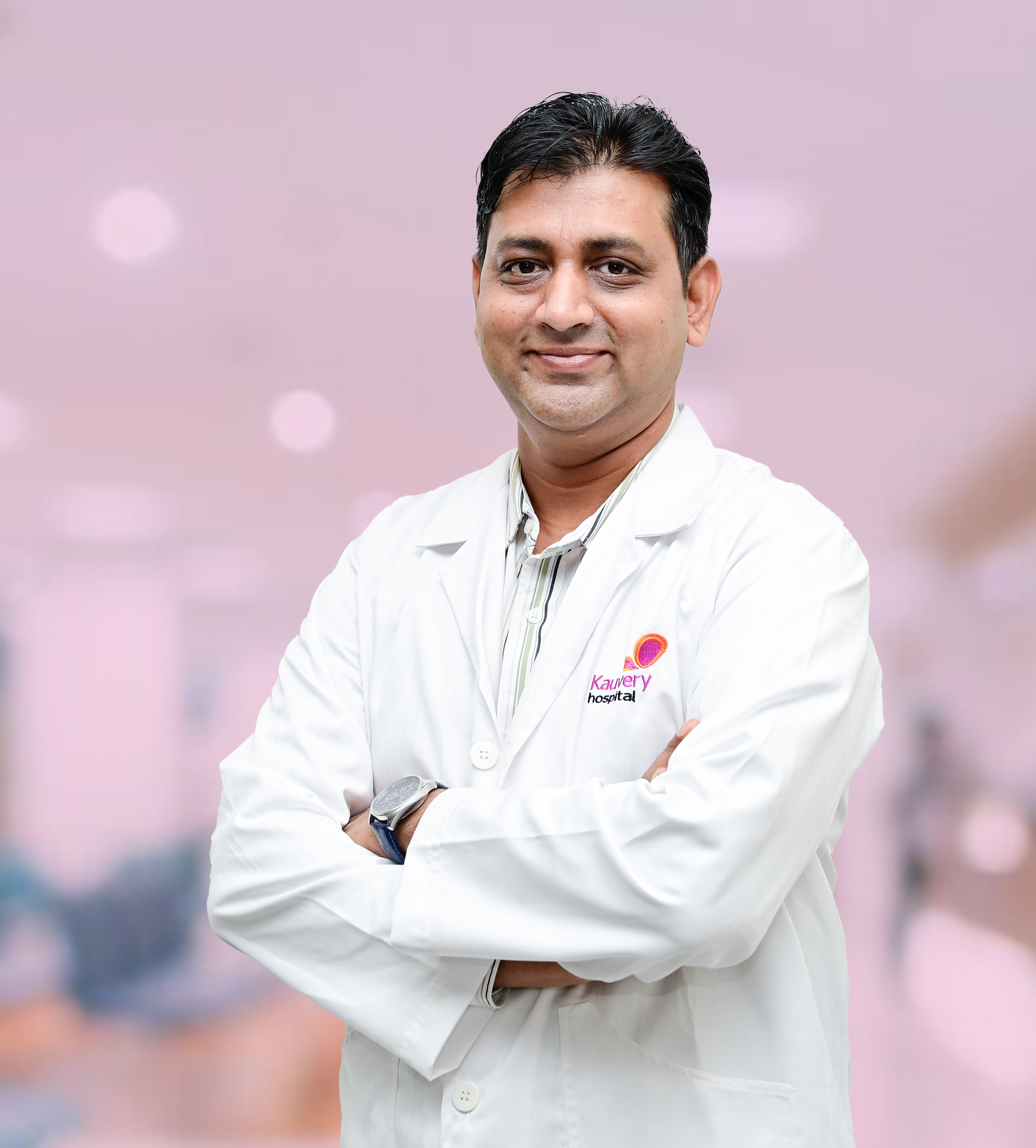
Associate Consultant - Cardiothoracic & Vascular Surgery (CTVS)
I have been visiting Dr. Krishna Shaw since my first delivery and now the second one. Extremly satisfied with her treatment. she listens to all our problems and suggests the course of action patiently.
All the doctors and staff is very good. Special thanks to Mr. Nagendra (patient care) who has taken care a lot.
I was admitted at Kauvery hospital. Everything is best here. The service , food , facilities, bedding , rooms , OT and most importantly dr Dhyaneshwar. I had a surgery and everything was world class